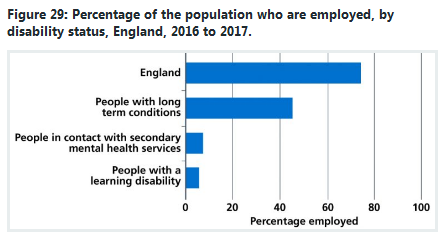
by Sue Brown, CEO ARMA
The NHS Long-Term plan was published earlier this week. I was pleased to see quite a bit about musculoskeletal health throughout the document. There has been lots of immediate reaction, positive and negative. I think now is the time to focus on the positive, so here are my highlights.
The first reference to musculoskeletal health comes early on, (para 1.17) but seems to be mostly about frailty and older people. Great, I thought as I read this, but MSK isn’t just about older people. Read on.
The chapter on care quality focuses strongly on the major killers such as cancer and heart disease, and this is what got all the media coverage. But it also talks about the biggest disablers of our population. This is important because the fact that we are all living longer in poor health is just as important as tackling killer diseases. The plan “affirms the importance of therapies and planned surgical services for conditions that limit independence and affect quality of life.” In case you thought that MSK wasn’t included in this, the section includes increasing the use of First Contact MSK Practitioners and expanding access to the on-line version of ESCAPE-pain. There is also recognition in the appendix that MSK conditions are a big cause of sickness absence and that rapid access to treatment is important in reducing this.
 Crucially the plan recognises that capacity for surgery such as joint replacement hasn’t grown fast enough, and that short waits are important. “Joint replacements and other planned surgery all help people stay independent and yield important quality of life gains.” This is great, although waiting times are a blunt measure and we also need to see a reduction in the hidden waiting list of people who need surgery but are being denied it on grounds with no clinical basis, such as BMI thresholds. But this recognition that joint replacement is important in helping people stay independent will help us make this case.
Crucially the plan recognises that capacity for surgery such as joint replacement hasn’t grown fast enough, and that short waits are important. “Joint replacements and other planned surgery all help people stay independent and yield important quality of life gains.” This is great, although waiting times are a blunt measure and we also need to see a reduction in the hidden waiting list of people who need surgery but are being denied it on grounds with no clinical basis, such as BMI thresholds. But this recognition that joint replacement is important in helping people stay independent will help us make this case.
There is a tendency for the NHS to focus on the common MSK conditions such as osteoarthritis or back pain. Less common conditions such as Ankylosing Spondylitis also limit independence and affect quality of life. The first hurdle for these conditions is often the length of time it takes to get a diagnosis. If the plan is to tackle rapid access to treatment for these conditions it must address this delay in diagnosis.
Increased funding for community and primary care, greater emphasis on more person-centred care, expanding the number of AHPs, these are all things which will benefit people with MSK conditions. The plan also includes a commitment to expanding the IAPT (Increasing Access to Psychological Therapies) programme to people with long term conditions (para 3.91), and also includes a case study on a living well with back pain course which integrates physical and psychological support. This is encouraging as ARMA works to see the recommendations in our mental health position paper implemented.
Inevitably there are omissions in the plan, but for now I’d prefer to focus on the opportunities it delivers and make the most of them. For now, the plan is just words on a page. It’s what happens next that’s important. Every area is now expected to set out a local plan to deliver the commitments (para 7.3). We need to work to make sure that people with MSK conditions are included in every local plan. The MSK community is ready to engage and make things happen – in the end, that’s what will make the difference.

